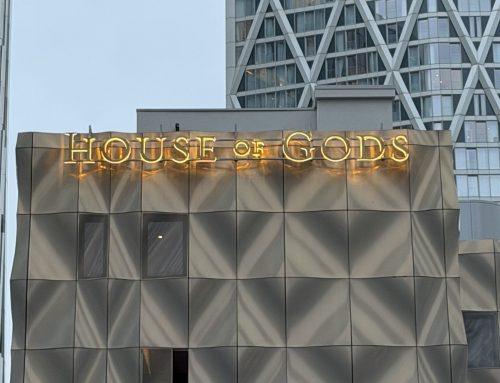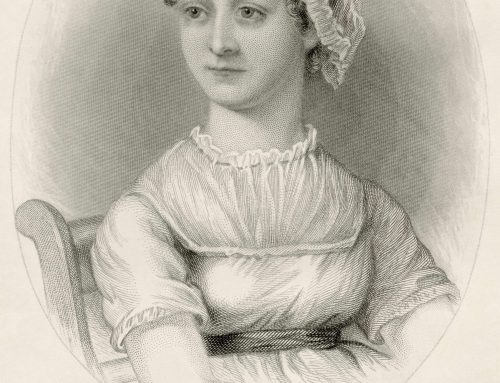Democratic Deficit?
Democratic Deficit?

Editorial
Nicholas Henderson
Editor: Anglicanism.org
Feast of Felix, Apostle to the East Angles c.647
Lent 2023
‘Gerrymandering’ is the political manipulation of electoral boundaries with the intent of creating an undue advantage for a political party or faction. These days it might also be extended to describe generically other associated practices to the same end.
The word was originally written Gerry-mander. It was first used in the Boston Gazette 26th March 1812 and named after Elbridge Gerry then Vice-President of the United States who signed a bill that created a partisan electoral district in the Boston area that approximated to the shape of a salamander. The term found its way into the Oxford English Dictionary in 1848. Gerrymandering is still evidently alive and well particularly in Republican controlled areas in the United States, where a number of devices are employed to ensure a more predicable electoral result in favour of the party.
Whilst currently busy assessing the recent decision published by the House of Bishops and welcomed by the General Synod[i] to enable same-sex couples to come to church after a civil marriage or partnership to give thanks, dedicate their relationship to God and receive God’s blessing – even the Church of England, cannot be accused of gerrymandering. At least not in terms of its electoral process, which has long used a system of Proportional Representation for its elections – the precise form being STV (Single Transferable Vote).
The British politician usually identified as the originator of STV is one Thomas Hare (1806-189), a friend of John Stuart Mill and proponent of electoral reform.
Notwithstanding, Thomas Hare, had he been alive today, would certainly have been concerned with the current UK government’s plans to ‘gerrymander’ the electoral system, a process which comes into effect at the English local elections in May 2023. In this case, the attempt to shift a particular voter demographic into a majority has come from the seemingly innocuous insistent of photographic evidence at election stations, supposedly in order to prevent electoral fraud. In the UK there is actually very little evidence of personation, intimidation or any other fraud.
Not fraudulent, but certainly unfair, the system as used in the United Kingdom for parliamentary elections remains that of the so-called ‘first past the post’[ii] (FPTP) where winner takes all regardless of how low a percentage actually voted for the candidate. This has produced some seriously skewed results. For example, the Johnson-led conservative victory at the 2020 general election produced a large parliamentary majority of 80 seats – hailed a great mandate and the will of the people on what was actually only 43.6% of the popular vote. Clearly, this system often effectively negates the wishes of a majority of voters.
More worrying still is the new requirement to produce voter photographic evident at polling stations and the apparent ‘gerrymandering’ evident in the bias towards elderly voters, who are presumed to be more likely to vote for the Conservative Party? Apart from driving licences and passports, photographic identification in the form of older persons bus passes and other 60+ years identifiers are acceptable, but not similar forms (student cards and so on) for younger people. This demographic is presumed to be more likely to vote for opposition parties. The disparity in identification requirements has prompted concern that younger voters will be comparatively disenfranchised.[iii] All of this at great expense.[iv]
The use of voter ID is in itself no bad thing, if it ensures democracy rather than distorting it. Nevertheless, there is a legitimate concern even if the scheme may in practice backfire and in practice remove the vote from the very people it is meant to encourage[v]. In short and in practice it looks like a subtle variation of gerrymandering.
What’s this got to do with the Church? A great deal, if democracy itself is under threat of manipulation. It is time for the Church of England in particular, whilst it still bears the responsibilities of being the Established Church, once again to make itself unpopular with the governing conservative right by protesting this anomaly. In short to practice what it preaches.[vi] Unless that is the increasingly majority membership of the Church is itself grey-headed, as sadly seems to be the case in many congregations.
[i] https://www.churchofengland.org/media-and-news/press-releases/prayers-gods-blessing-same-sex-couples-take-step-forward-after-synod
[ii] The only other European country to use the UK parliamentary voting system is Belarus.
[iii] https://bylinetimes.com/2022/11/07/voter-id-its-far-worse-than-any-us-state/
[iv] https://www.electoral-reform.org.uk/why-will-the-governments-voter-id-scheme-cost-us-up-to-180000000-a-decade/?utm_medium=email&utm_source=ers-email&utm_campaign=blog-roundup&utm_content=Blog+Round+Up+25+Feb+B
[v] https://www.theguardian.com/politics/2023/feb/20/low-uptake-for-free-voter-id-scheme-among-elderly-and-young-people-in-uk
[vi] https://www.churchtimes.co.uk/articles/2022/21-october/comment/opinion/time-for-the-c-of-e-to-preach-what-it-practises-on-elections





